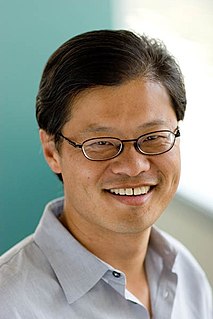A Quote by Edgar Mitchell
Perhaps people need to understand some history here. Rene Descartes, in the late 16th, early 17th century, postulated that body, mind, physicality and spirituality belonged to different realms of reality that didn't interact. On a positive side, it got the Inquisition off the backs of the intellectuals and they quit burning them at the stake for disagreeing with the Church.
Related Quotes
The downside was that for 400 years, science has grown up, has arisen and developed as a purely materialist concept and avoided the subject of mind and consciousness, leaving it to the realm of religion. Only with the founding of quantum science in the early part of the 20th century have we realized that the Cartesian Duality is wrong, that body, mind, physicality do interact and they're interrelated.
Though I do regard the Inquisition in general and the burning of Giordano Bruno in particular as blots on the history of the Roman Catholic Church, I am far from being actuated by hatred of that church, and in fact cannot imagine that European civilization would have developed or survived without it.
My tumour is a benign pituitary tumour, in the pituitary gland - which is the main hormone centre of the body. It's in the centre of the brain. (Fun fact, [Rene] Descartes thought our consciousness was to be found in the pituitary gland.) And the thing is, there aren't really many symptoms that show until it's too late.
17th century philosophers were not in a position to understand the mind as well as we can today, since the advent of experimental methods in psychology. It shows no disrespect for the brilliance of Descartes or Kant to acknowledge that the psychology which they worked with was primitive by comparison with what is available today in the cognitive sciences, any more than it shows disrespect for the brilliance of Aristotle to acknowledge that the physics he worked with does not compare with that of Newton or Einstein.
In the early period of Left struggles, in the late nineteenth and early twentieth century, there were many different trajectories for the struggle, whether you call it 'syndicalism' or 'anarchism' or, at the time, 'social democracy', eventually 'Communism', these were different theories of struggle. But all of them shared a basic understanding that the people...experience exploitation, they experience oppression, but they're not prepared to rise up.
Sometimes people go off in a slightly different direction of wanting to be different, of wanting to be special, of wanting to be more, and I think that those people are often - not always, but often - genuinely different in some way. Perhaps their gender orientation is not acceptable or popular, not the norm. Or, their physical design is literally, in some way, setting them apart. Or, in many cases, they feel the burden of their ordinariness so dreadfully that they strive to find some way of being unique. I think that can be a very positive thing, but it also can be negative, destructive.
Another problem of fragmentation is that thought divides itself from feeling and from the body. Thought is said to be the mind; we have the notion that it is something abstract or spiritual or immaterial. Then there is the body, which is very physical. And we have emotions, which are perhaps somewhere in between. The idea is that they are all different. That is, we think of them as different. And we experience them as different because we think of them as different.
I'd signed up not just for Christianity but the established Church of England. That has a particular history and I think we rather lost it in the 19th Century, we became so much part of empire and colonialism, the language of the Church Of England still reflects that Victorian time. As the 20th Century developed, not surprisingly people left the church and I can see the church's role in losing people.

































